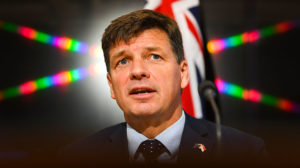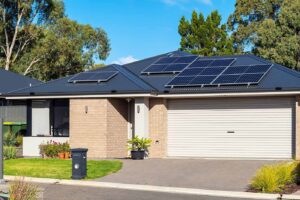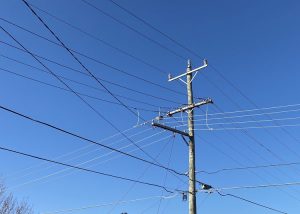Victoria’s energy minister says the state will “go it alone” on energy reliability reform, after becoming frustrated by the federal energy minister Angus Taylor’s failure to drive through crucial electricity market rule changes at a national level.
State energy minister Lily D’Ambosio said on Wednesday that the Andrews government had requested an exemption from the Australian Energy Market Commission to allow it to negotiate for longer-term deals for emergency back-up power supply contracts.
As the minister points out, the body in charge of such negotiations, the Australian Energy Market Operator, has itself been pushing for such a rule change to allow a longer lead time for Reliability and Emergency Reserve Trader agreements.
As RenewEconomy has reported, the RERT mechanism plays a critical role for AEMO as it plans ahead for potential – and increasingly likely – combination of searing summer heat-waves and the failure or absence of key generators.
The current long-term RERT mechanism – itself only reinstated by the AEMC last year – means that AEMO can negotiate strategic reserves no earlier than nine months ahead of a projected shortfall.
But AEMO wants a further rule change to allow for multi-year RERT contracts, which it argues would boost competition, offer better value for money for consumers, and increase security in the face of Australia’s ageing coal power clunkers failing during times of peak demand.
D’Ambrosio – who slammed the glacial pace of change of National Energy Rules in a speech in July – said Victoria was sick of waiting, and would instead go it alone with the market operator in negotiating cheaper multi-year contracts for additional reserve power.
“The only thing failing more than our ageing coal fired power plants is Angus Taylor,” the minister said.
“Victoria is not willing to wait on the sidelines when it comes to planning for our energy future – which is why we’re breaking free from the federal government’s out-dated rules and getting it done ourselves.
“Securing longer-term reserve power is not a silver bullet, but it’s important we use everything in our arsenal to help AEMO balance our energy supply and demand during prolonged hot weather.”
D’Ambrosio said taking this step would not only mitigate against the risk of the state’s ageing privately owned coal generators failing when needed most, but would encourage competition from smaller generators, better equipped to supply additional power for a longer duration.
And The Australia Institute agrees, saying multi-year contracts for reserve power in Victoria would improve reliability, lower the cost of electricity and encourage innovation in demand response.
“Longer-term contracts give the right price signal to large industrial users such as gas producers, smelters, cement pulp and paper to offer demand response and other types of reserve power into the market,” said TAI policy lead Dan Cass in comments on Wednesday.
“Victoria’s gas and coal power plants are the most unreliable in the country, breaking down 75 times since December 2017, and the Victorian government is taking the sensible step of securing long-term reserve power contracts.
“If reserve power contracts are long-term then this reduces risk and should encourage more providers to enter the market, stimulating innovation.”
Not so thrilled by Victoria’s power play, however, is the Energy Users Association of Australia, which issued its own statement on Wednesday calling the move “concerning,” and pushing for “some form of capacity market” instead.
“The RERT mechanism is designed as a last resort safety net to be applied when the reliability standard is likely to be breached and has proven to be a very expensive way of managing the energy system,” said EUAA chief Andrew Richards.
“If we need some form of capacity market to ensure we have sufficient dispatchable resources available to AEMO then we should have that discussion and not try to bend an emergency measure into something it was never designed to do.
“Many energy users recognise RERT is an emergency measure and are prepared to help out, but it can’t be sustained in the long term.”
Certainly, Victoria’s request to the AEMC promises to make for an interesting COAG Energy Council gathering – the first and likely only face-to-face meeting of the state and federal energy ministers in 2019 – which will take place in Perth on November 22.
Just weeks before the meeting was called, D’Ambrosio had written to Taylor demanding he immediately convene the Energy Council to deal with the growing list of outstanding business.
In her statement on Wednesday, D’Ambrosio noted that updating the wider energy rules would continue to be an important topic at the upcoming meeting, and that the state would welcome federal government contribution to the “important discussion.”







